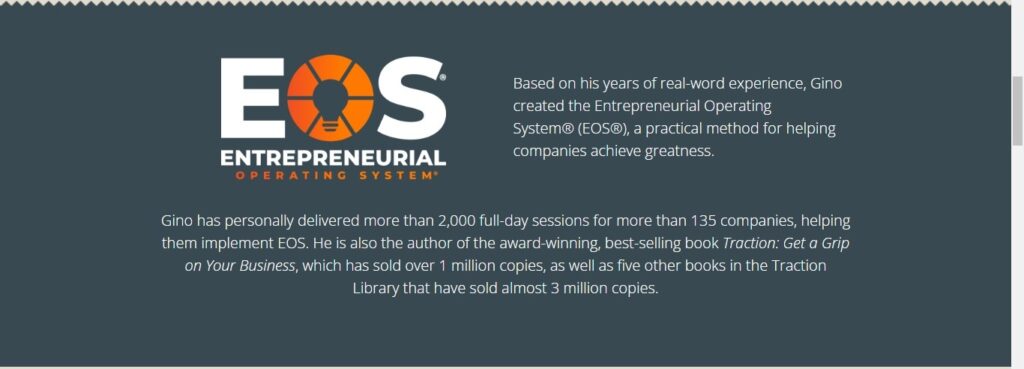The Entrepreneurial Operating System (EOS) has gained significant attention in recent years as a framework designed to help businesses achieve clarity, traction, and growth.But does it actually work? Let’s explore the effectiveness of EOS and its potential benefits.
What is EOS?
EOS is a comprehensive business management system developed by Gino Wickman. It focuses on six key components:

- Vision: Defining and clarifying the company’s core values, purpose, and long-term goals.
- People: Hiring, developing, and retaining the right talent to support the company’s vision.
- Data: Tracking key performance indicators (KPIs) to measure progress and make data-driven decisions.
- Issues: Identifying and addressing challenges that may hinder the company’s progress.
- Process: Establishing efficient and repeatable processes to streamline operations.
- Traction: Setting quarterly goals and tracking progress to ensure the company is moving forward.
How Does EOS Work?
Entrepreneurial Operating System (EOS) provides a systematic way to managing and growing a small medium or large business. If you focus on these six key components, businesses can:
- Improve communication and collaboration: EOS encourages open and honest communication among team members, fostering a culture of transparency and trust.
- Increase accountability: EOS assigns clear responsibilities and holds individuals accountable for their actions, leading to better results.
- Enhance decision-making: EOS provides a framework for making informed decisions based on data and analysis.
- Improve efficiency: EOS helps identify and eliminate inefficiencies in processes, leading to increased productivity.
- Drive growth: EOS provides a roadmap for achieving the company’s vision and goals, driving sustainable growth.
Does EOS Work?
While there is no one-size-fits-all answer, many businesses have reported significant benefits from implementing EOS. Some of the common outcomes include:
- Increased revenue and profitability
- Improved employee engagement and satisfaction
- Stronger company culture
- Better decision-making
- Greater clarity and focus
- Improved communication and collaboration
However, it’s important to note that the success of EOS depends on several factors, including:
- Leadership commitment: Strong leadership support is crucial for the successful implementation of EOS.
- Team buy-in: The entire team must be committed to the EOS process and willing to embrace change.
- Proper implementation: EOS should be implemented correctly and consistently to achieve the desired results.
- Regular review and adjustment: EOS is an ongoing process that requires regular review and adjustment to adapt to changing circumstances.
Conclusion
The Entrepreneurial Operating System (EOS) can be a powerful tool for businesses looking to achieve clarity, traction, and growth. While it may not be a magic bullet, when implemented correctly, EOS can help businesses improve their performance and achieve their goals.
If you’re considering implementing EOS, it’s important to do your research and carefully evaluate whether it’s the right fit for your business. Consider seeking the guidance of an EOS Implementer to ensure a successful implementation.